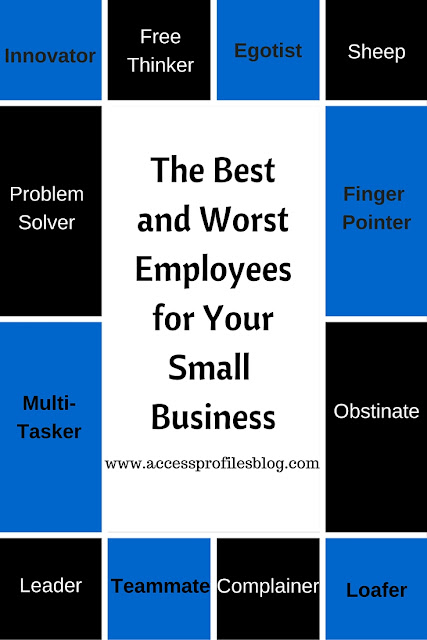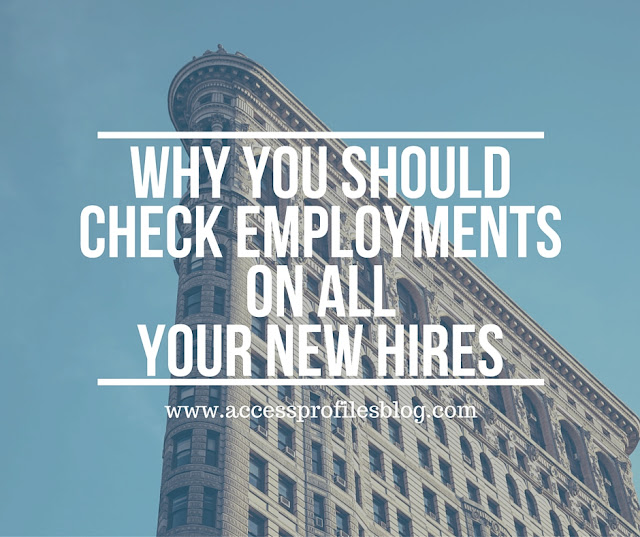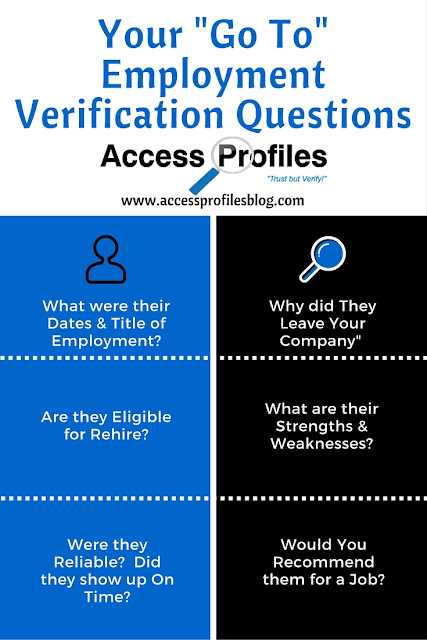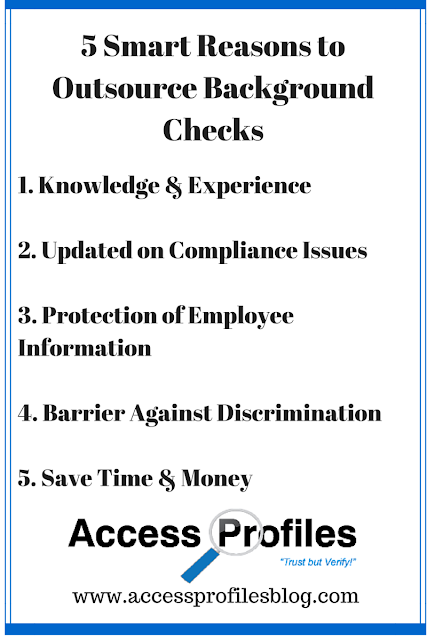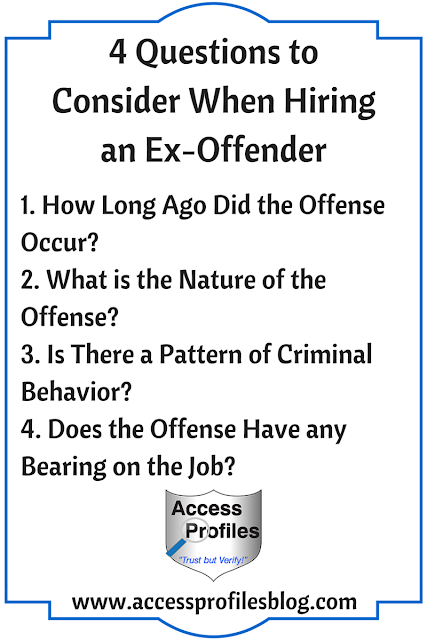 |
| I can Help You Avoid a Hiring Mistake! |
When it comes to Hiring, you can think you have done everything right. You took the time to write the best job descriptions to help you hire. You screened your applicants thoroughly, hoping to weed out any resume lies or past behavior that could signal an unsafe hire.
But despite your best efforts, you are slowly starting to think you might have made a mistake.
Now what do you do?
Steps You Should Take if You Made a Hiring Mistake “Tweet This”
Here in part 2 of my series on The Employees You Want to Hire and the Ones to Avoid, I will share some early warning signs to look for and what you can do to get back on the right hiring track!
Most often, your first mistake is made during the interview and screening process. You may be in a hurry to hire and you become rushed. Instead of spending the time necessary to verify resumes and check details, you grab the first candidate that looks promising.
This is a mistake. Taking the time now to interview and screen your applicants thoroughly can save you from major hiring headaches later.
That is why it is important you recognize the potential warning signs during the interview! And your best weapon is to consistently ask the right questions and listen closely to the answers.
As discussed in Part 1 of this series;
“It is possible to spot your Best and Worst Hires during the interview and screening process. It is all about asking the right questions. Be sure to ask them and their former employers for specific examples of when your applicant worked as part of a group, spearheaded a project, or solved a problem.
Listen carefully to the answers and note when they fit the kinds of traits you are looking for.
Conversely, pay attention to any red flags. Any examples where your applicant is overboard on self-praise should be noted. And a past employer’s perception of them as unreliable or unproductive should give you pause."
Find out more by checking out the entire article here!
So, now that you know what to do during the interview stage, it is important to recognize the signs to look for AFTER you make your hire!
 |
| After the Hire ~ What You can Do if You Made a Mistake! |
Early Warning Signs You Have Made a Hiring Mistake
Be Wary of New Hires……
Who Expect Special Treatment - They quickly want their job duties or work schedule changed to accommodate them.
Who Constantly Complain - They are very vocal about what they see as problems. They are quick to point out ways they are being taken advantage of or being treated unfairly. This behavior can ruin company morale.
Who are Doing the Bare Minimum - The best new hires want to stand out. They go above and beyond in order to prove to you that you made the right choice. If your new hire is not doing this, then you should be concerned.
Who Repeat Their Mistakes - You have to expect that new hires will not be perfect. But when a mistake is pointed out to them, and the correct way to do something is explained, then continuing to do it wrong spells trouble. It shows lack of focus and commitment to doing their job well.
Who are Unwilling to do things Your Way - They continue to do things like they did at their previous job or how they think is best.
This can be a sign of someone too set in their ways. While you should always be open to new ideas, being completely unwilling to adapt, without even trying it your way, should be a warning sign.
Who Will Never Take the Reigns - They won’t take any initiative or jump at the chance to spearhead a new project or team.
Who are the Source of Complaints from Your Other Employees - You are being bombarded by your existing workers with tales of incompetence, lack of team work, laziness, etc. While you can’t simply take these complaints at face value, you do need to check into them.
Now that you have learned how to spot a potentially problematic employee, it is time to find out what you should do about it ~ and the answer to that question is really, “It Depends”!
There are times that your new hire can be saved. It is possible that putting them through a re-training program will help. Or maybe you have simply hired the right person for the wrong position. In that case, moving them to a different position (if possible) can make all the difference.
If you decide that giving your New Hire a Chance is an option, then you should:
Consider Re-Training Your New Hire
It is important that you are giving your new hires the tools they need to hit the ground running. You can’t expect them to be productive and fit right in if you are not willing to take the time to help.
That means careful and well thought out onboarding. Be sure to use established and detailed training programs. Make them as specific to your new hire’s position as possible.
If your onboarding and training processes are up to par, then it is possible that taking the time to re-train your new hire will put them on the right track.
Take a Look at How Your New Hire “Fits”
It may be that your new hire has the skills they need to do the job, but they just don’t seem to fit in. They may not understand or gel with your company culture. Or they may simply be too unsure of themselves.
Either way, you have to decide if taking additional steps is worth it to keep them. If you choose to try and work it out, then finding them a mentor to help them during their transition is a great step.
Having a mentor gives your new hire an immediate close contact within your company. It provides them someone to go to with questions where they won’t be judged. This can make all the difference.
 |
| Made a Hiring Mistake? I can Help! |
However, there are other times when it is better to cut your losses and let your new hire go. And once you have made the decision that this course of action is best, then it is crucial that you take the time to do it right.
It starts with a one on one with your new hire.
Be completely open and honest with them about why it is not working out. Be ready with clear examples of problems you have observed about their job performance. Avoiding accusations and personal attacks is key.
It is also important you give your new hire the chance to provide any mitigating circumstances that can explain their behavior. It is possible that their answers may provide you with some insight that could alter your decision to let them go.
No matter what you decide, it is absolutely necessary that you document the entire conversation and any previous actions (re-training and/or mentoring for example) and subsequent decisions made concerning your new hire.
You should also keep detailed records of all performance reviews and any steps taken or directives given to your employee to remedy the problem.
This will help protect you and your company from a potential lawsuit. In fact, it should be done for all your employees at all times!
Even when an employee is new, or still in their probationary period, this is important. You must have records documenting everything from their initial interviews, to their hiring, to their work while with your company, and this includes the steps you take before letting them go.
Once your problem employee is gone, you will once again need to hire. And it is key that you learn from your previous mistakes or risk making a bad hire all over again.
Remember, any hiring mistakes you make will cost your small business not only time, but money. Evaluating what you are doing now and how you can make your hiring process better in the future makes good business sense.
Keeping the Right Employee Starts with Your Hiring Process “Tweet This”
 |
| I Can Help You Hire Safely! |
Learn more about How to Hire Right with the tips found in these articles:
and
Now you are armed with the information you need to hire right in your Small Business. In Part 1 of this series you learned who to hire and who to avoid. And here in Part 2 you discovered the steps you can take if you have already made a hiring mistake.
Using these tips will help you hire with success!
Please Pay it Forward and Share this article on your favorite social sites! I would also love to hear your own hiring stories. Comment Here! Thanks!
Authored by

Contact Me Now! I can help you Hire Right in your Small Business!
 |
| Find out What I can Do to Help You Hire Right! |
Get Your Hiring Questions Answered!
Visit my
Resources and Frequently Asked Questions or Contact page. You can also find out more About Me and the Services I offer!

